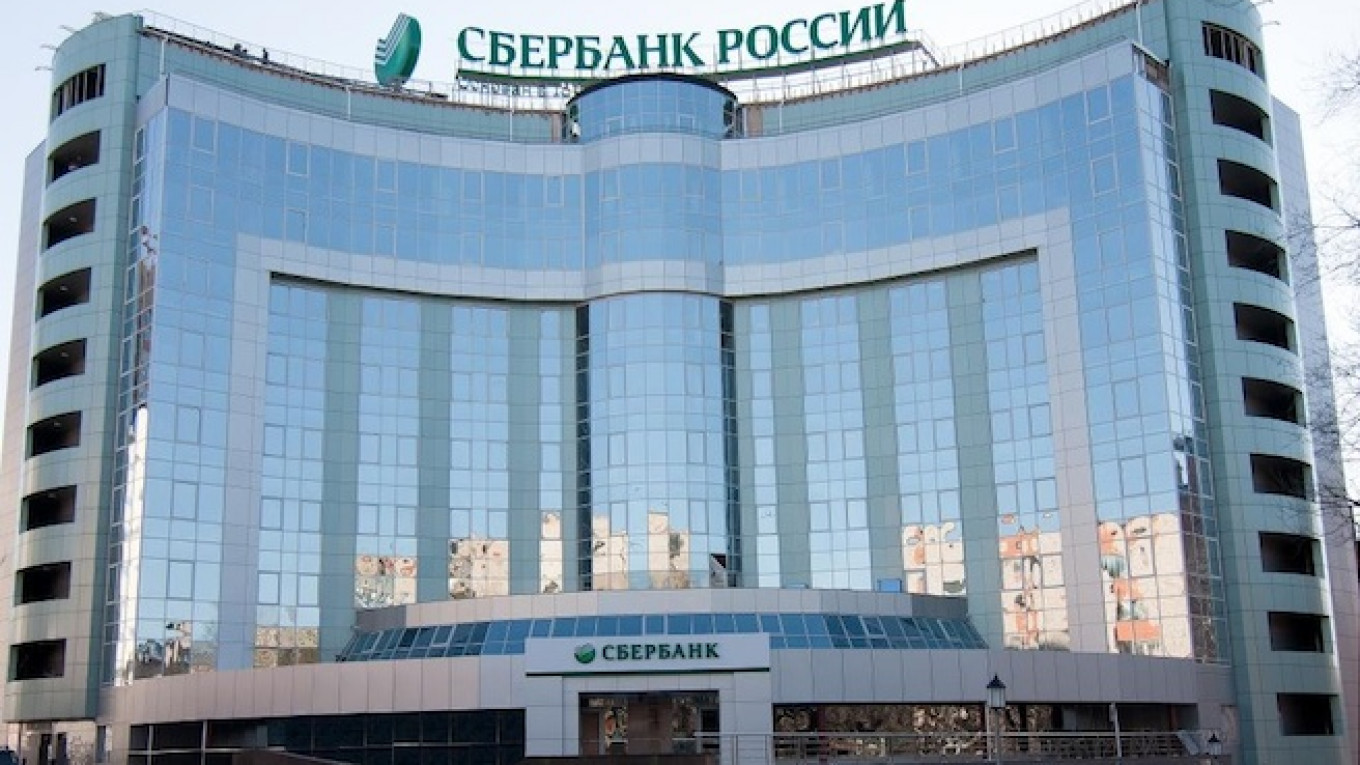WASHINGTON — The U.S. will take new steps on Friday to limit the access of major Russian banks, including Sberbank, to U.S. debt and equity markets to punish Russia for its intervention in Ukraine, sources familiar with the matter said.
The sanctions are timed to coincide with fresh European Union economic penalties, with both sets aimed at the Russian energy, financial and defense sectors.
They are the latest sanctions imposed by the U.S. and the EU following Russia's annexation of Crimea in March and what the West sees as an effort since to further destabilize Ukraine by backing pro-Russian separatists with troops and arms.
The steps are designed to keep up pressure on Russia, which denies sending troops into eastern Ukraine despite what Kiev and its Western backers say is overwhelming evidence to the contrary. Moscow also denies arming the separatists.
The U.S. is acting despite a fragile truce in eastern Ukraine, where separatists have fought Ukrainian forces for months, and an assessment by Ukraine's president that Russia has pulled most of its troops out of his country.
In July, the U.S. effectively cut off five Russian financial groups, VTB Bank, Gazprombank, Bank of Moscow, VEB and Russian Agriculture Bank, from U.S. equity and debt markets by barring U.S. persons from "transacting in, providing financing for, or otherwise dealing in new debt of longer than 90 days maturity or new equity."
The sources, who spoke on condition of anonymity, said the U.S. government planned to apply the same essential sanction to Sberbank, Russia's largest bank by assets, and to tighten the restriction for all six financial institutions by barring U.S. persons, meaning individuals and companies, from dealing in their new debt with a maturity of more than 30 days.
The White House said the sanctions would be unveiled on Friday.
In sanctioning the five Russian financial services firms in July, the U.S. Treasury stressed that it had "not blocked the property or interests in property of these banks, nor prohibited transactions with them beyond these specific restrictions."
U.S. officials said Washington would also apply measures on Russia that aim to stop billions of dollars in oil exploration in Siberia and Russia's Arctic.
These sanctions seek to ban cooperation with Russian oil firms on energy technology and services by companies including Exxon Mobil and BP Plc.
A third element of the sanctions will target Russian defense companies. One source said the U.S. would "designate" additional Russians arms makers, essentially putting them off limits to U.S. companies.
On July 29, United Shipbuilding Corp, which builds ships for the Russian navy and is Russia's largest ship builder, had its U.S. assets frozen. In addition, U.S. persons were barred from dealing with it.
In a brief written statement, U.S. President Barack Obama hailed additional sanctions to carried out by the EU but stressed that the U.S. remains open to a diplomatic solution over Ukraine.
"We are implementing these new measures in light of Russia's actions to further destabilize Ukraine over the last month, including through the presence of heavily armed Russian forces in eastern Ukraine," Obama said.
"If Russia fully implements its commitments, these sanctions can be rolled back," he added. "If, instead, Russia continues its aggressive actions and violations of international law, the costs will continue to rise."
A Message from The Moscow Times:
Dear readers,
We are facing unprecedented challenges. Russia's Prosecutor General's Office has designated The Moscow Times as an "undesirable" organization, criminalizing our work and putting our staff at risk of prosecution. This follows our earlier unjust labeling as a "foreign agent."
These actions are direct attempts to silence independent journalism in Russia. The authorities claim our work "discredits the decisions of the Russian leadership." We see things differently: we strive to provide accurate, unbiased reporting on Russia.
We, the journalists of The Moscow Times, refuse to be silenced. But to continue our work, we need your help.
Your support, no matter how small, makes a world of difference. If you can, please support us monthly starting from just $2. It's quick to set up, and every contribution makes a significant impact.
By supporting The Moscow Times, you're defending open, independent journalism in the face of repression. Thank you for standing with us.
Remind me later.






